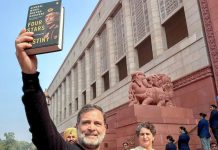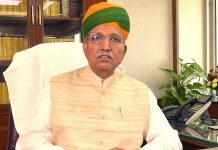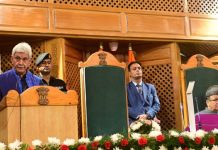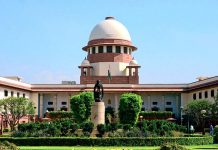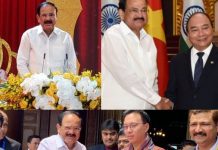
Even as the Mahakumbh draws to a close, bringing millions of Hindus together in a celebration of faith, unity, and tradition, the first family of the Congress has given it a miss.
While political leaders from all outfits, including Congress, have been visiting Kumbh, no one from the Gandhi family has visited Prayagraj for the religious festival.
Rahul Gandhi, as the party’s most prominent face, could have used this occasion to bridge the gap between the Congress and the Hindu majority, a demographic that has increasingly gravitated toward the BJP over the past decade. Yet, despite being in Uttar Pradesh—visiting his constituency Rae Bareli around the same time—he chose not to attend, missing a pivotal moment to reclaim the Hindu vote.
Kumbh is not just a spiritual spectacle but also a politically significant stage. For Rahul Gandhi, the Leader of Opposition in Lok Sabha, the Kumbh presented a golden opportunity to connect with the Hindu electorate—a chance he has conspicuously let slip through his fingers.
Prime Minister Narendra Modi, for instance, made a high-profile visit to the Maha Kumbh in February 2025, taking a holy dip and engaging with saints and devotees—an act that reinforced his Bharatiya Janata Party’s (BJP) image as the custodian of Hindu interests.
For the Congress, a party that has historically struggled to shed its perception as “anti-Hindu” or overly focused on minority appeasement, the Kumbh offered a chance to reset the narrative.
This despite the fact that over the past few days, Karnataka Deputy Chief Minister DK Shivkumar, former chief minister of Madhya Pradesh Digvijaya Singh and former chief minister of Rajasthan Sachin Pilot and Himachal Pradesh CM SS Sukhi have frequented the holy festivities in Mahakumbh.
This isn’t the first time Rahul Gandhi has sidestepped a major Hindu event. His absence from the Kumbh aligns with a broader pattern of reluctance to fully embrace Hindu symbolism unless it’s tied to an electoral campaign. During the 2017 Gujarat Assembly elections, he visited numerous temples to project a “soft Hindutva” image, a strategy that showed some success in countering the BJP’s dominance. Similarly, in the run-up to the 2024 Lok Sabha elections, he invoked Hindu imagery—like holding a picture of Lord Shiva in Parliament—to challenge the BJP’s monopoly over Hindu identity.
Uttar Pradesh, a state that sends 80 MPs to the Lok Sabha and remains a key battleground for the Congress’s revival. By skipping it, Rahul Gandhi has reinforced the perception that his engagement with Hindu culture is superficial and selective—limited to moments when votes are directly at stake rather than a genuine commitment to the community’s values.
Rahul Gandhi taking a dip in the Sangam, meeting with revered saints, and addressing the gathered devotees. Such a gesture could have signaled that the Congress is not disconnected from Hindu sentiments, countering the BJP’s narrative that the party is out of touch with the majority’s faith. It could have been a powerful rebuttal to accusations of Muslim appeasement that have dogged the Congress for decades, especially in a state like Uttar Pradesh where communal polarization has often tilted elections in the BJP’s favor.
Rahul Gandhi could have leveraged this to articulate a vision of Hinduism that contrasts with the BJP’s more exclusivist Hindutva ideology, appealing to both progressive and traditional voters. Instead, his absence has left the field open for the BJP to dominate the narrative, further entrenching their claim over the Hindu vote bank.
To truly challenge the BJP, the Congress must shed its image as a party alienated from Hindu traditions. The Kumbh was a low-hanging fruit—an event rooted in faith, not partisan politics—that could have bolstered Rahul Gandhi’s credibility among Hindu voters without compromising the party’s secular ethos.
By choosing to visit Rae Bareli but not extending his itinerary to Prayagraj, Rahul Gandhi has inadvertently handed the BJP another talking point: that the Congress remains indifferent to Hindu festivals and traditions unless they serve an immediate electoral purpose. This perception is particularly damaging in Uttar Pradesh, where the party’s alliance with the Samajwadi Party relies on broadening its appeal beyond its traditional base.
Rahul Gandhi’s decision to skip the Mahakumbh is a strategic misstep that underscores the Congress’s ongoing struggle to reconnect with India’s Hindu majority. At a time when the party needs to rebuild trust and expand its voter base, the Kumbh offered a rare chance to showcase a more inclusive, faith-respecting Congress—one that honors Hindu traditions while staying true to its pluralistic roots. Instead, his absence has fueled accusations of political pettiness and reinforced the BJP’s narrative dominance.

